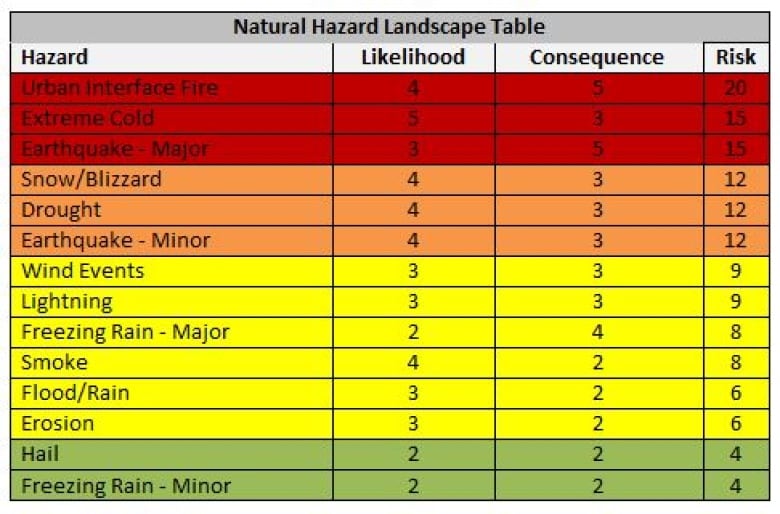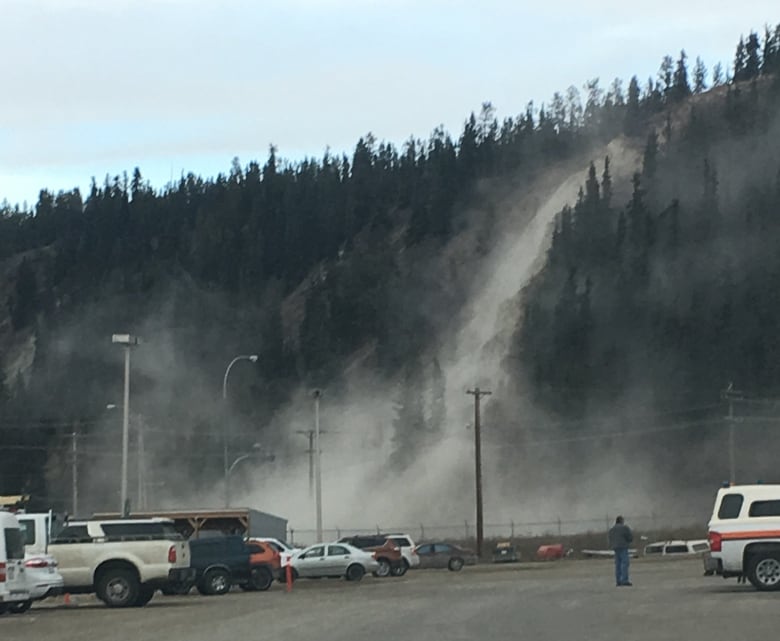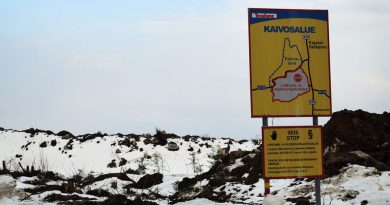Northwestern Canada: wildfire is biggest threat to city of Whitehorse, report says

A report commissioned by the City of Whitehorse says wildfire poses the greatest risk of catastrophe to the city, followed by hazardous material accidents, major earthquakes, and extreme cold.
The “hazard identification and risk analysis” was prepared by Calian Emergency Management Solutions, an Ottawa-based consulting firm. The report was delivered to Whitehorse city council at Monday’s meeting.
It analysed both the likelihood of different hazards — natural and human/technological — and the possible consequences in Whitehorse, ranked from “negligible” to “catastrophic.”
Besides fire, earthquakes, and cold, other potential hazards include things such as major power failures, telecommunications failures, drought, blizzards, and hazardous material spills.
“Basically, it was a need for the city to identify what risks [exist]. So, I look at this as a net — so we threw that net wide, to see what kind of hazards that were out there,” said Chris Green, deputy fire chief for the city.

“I don’t think that’s a surprise to anybody here, that that would be the number one hazard that we’re faced by,” said Chris Green, deputy fire chief for the city.
“No matter what we do, the potential is always going to be there.”

Prioritizing emergency planning
HAZMAT incidents — for example, highway accidents that result in spills of hazardous materials — received the next highest score of 16 out of 25.
Major earthquakes and extreme cold followed, each with a score of 15. A major earthquake was deemed “possible” (instead of likely), but with potentially catastrophic consequences, while extreme cold was considered “almost certain,” but with a potential for only moderate consequences.
Green says the study will help the city prioritize its emergency planning.
“No emergency is the same. So, no matter how many motor vehicle collisions you go to, no matter how many house fires you go to, no matter how many urban interface fires you go to — there’s never two the same,” he said.

Green says the city is updating its online communications plan, so residents can know what to do in a major emergency — for example, where to find warming centres in a cold-weather emergency, or what evacuation route to use out of the city.
A power outage in January left thousands of residents in darkness on a day when temperatures plunged to -35. Some were without power for up to nine hours.
“The key thing that we want to do this year is test our evacuation procedures … see what kind of hiccups we’re gonna have, and fix them. So when the real thing happens, we already have a system in place that’s going to work,” he said.
“By the end of 2019 our emergency master plan will be where it needs to be,” he said.
With files from Nancy Thomson and Sandi Coleman
Related stories from around the North:
Canada: Wildfire evacuations have unique impacts on Indigenous communities: study, CBC News
Finland: In crisis, would Finland’s supplies be safe on Arctic rail near Russian border?, YLE News
Norway: Rising nuclear activity in Arctic Europe prompts Norway to update disaster plans, The Independent Barents Observer
Russia: Forest fires are raging across the Barents region, The Independent Barents Observer
Sweden: Sweden issues first brochure on war and crisis preparedness since Cold War, Radio Sweden
United States: Trump Administration approves funds for Alaska earthquake recovery, Alaska Public Media



